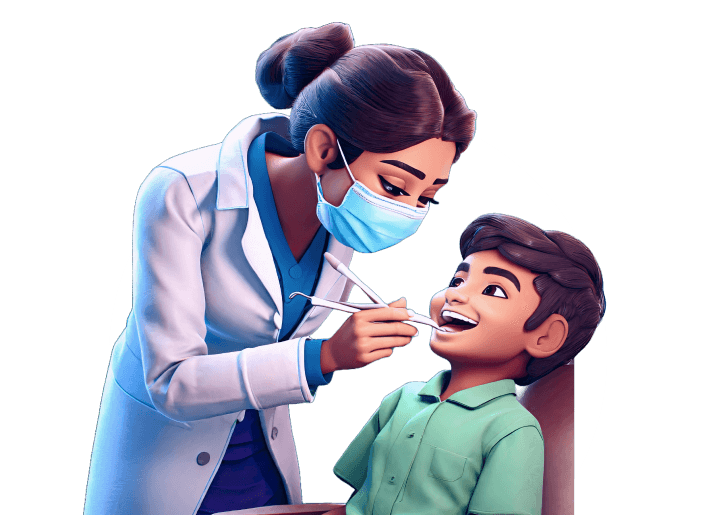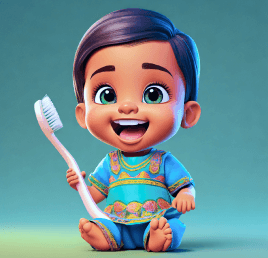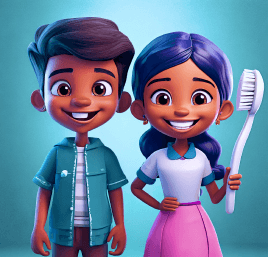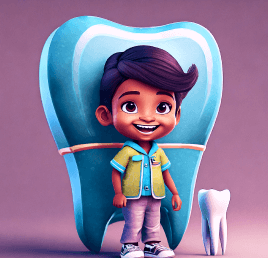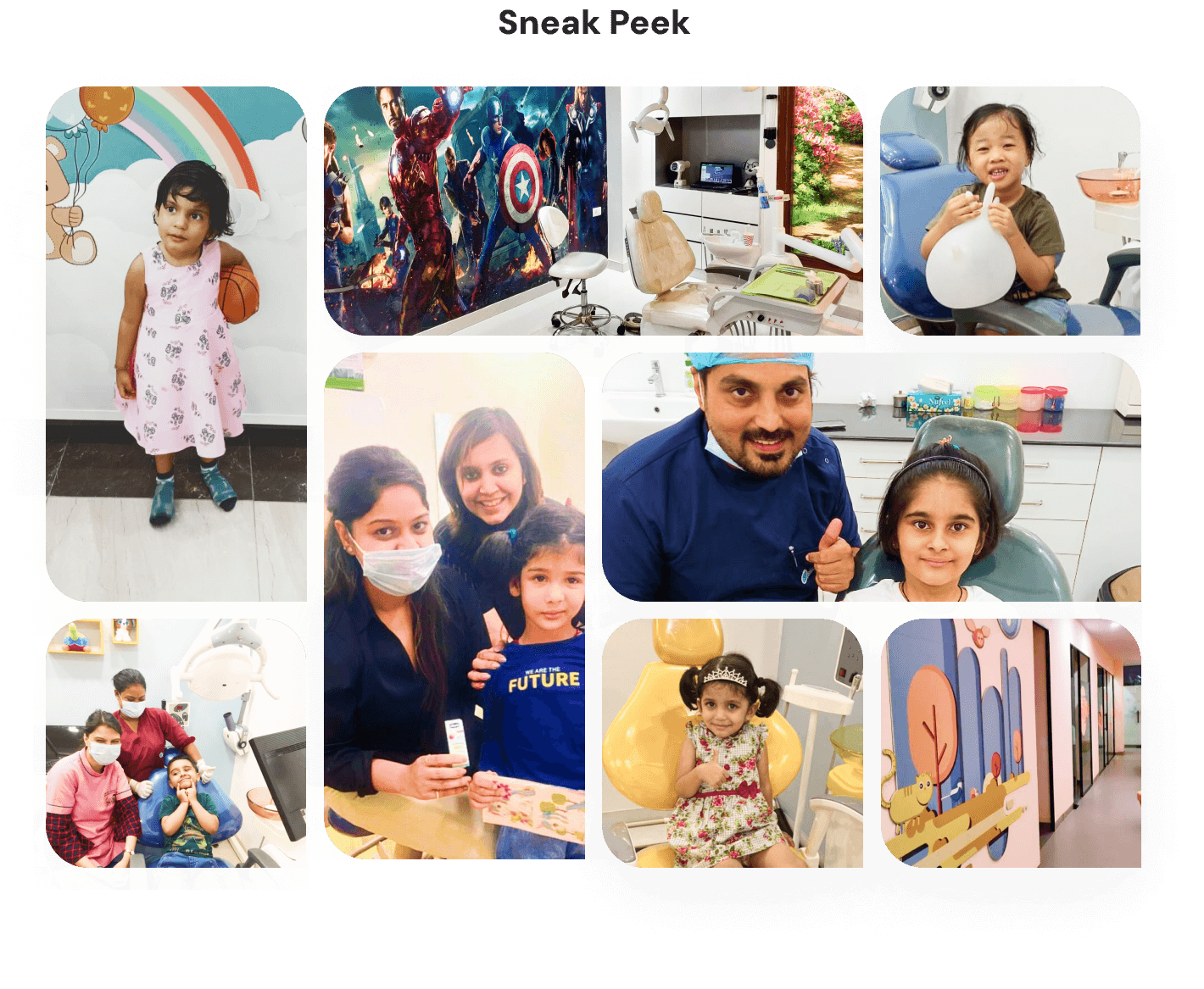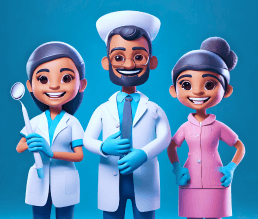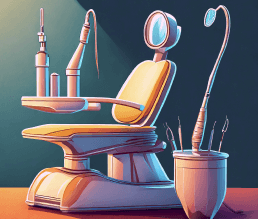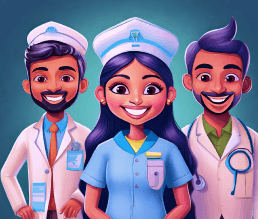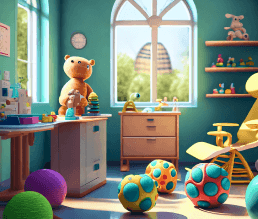Why a Pediatric Dentist?
There are lots of differences in adult dental needs & kids dental needs. There are structural & anatomical differences in teeth & gums compared to an adult. There are age & growth related changes on which a pediatric dentist is an expert. Only Pediatric dentists are highly trained specialists who can deal with dental fear & anxiety which usually begins during childhood & tends to worsen with time if not addressed early.
What happens on the First Dental Visit?
The first dental visit is recommended by 12 months of age, or within 6 months of the first tooth coming in. The first visit often lasts 30 to 45 minutes. Depending on your child's age, the visit may include a full exam of the teeth, jaws, bite, gums, and oral tissues to check growth and development. On your first dental visit, the pediatric dentist focuses more on making the child comfortable with the doctor and the environment. They focus on building a friendly bond with the child. Also introduces the child to different functions of the dental chair in a playful manner.
What is the difference between general & a pediatric dentist?
Even though both pediatric and general dentists treat dental health issues, the two types of dentists differ in several ways. Adult teeth and adult dental health conditions are typically treated and focused on by general dentists, whereas pediatric dentists typically only treat children's teeth (also known as baby teeth), mixed dentition (kids with some baby teeth and some adult teeth), and occasionally adults with special needs. Aside from that, children must be treated differently and spoken to in a way that they can understand, and they must ultimately feel comfortable in order to cooperate and receive treatment. This necessitates extra attention, time, and sometimes patience that a general dentist may not have received as well as a pediatric dentist. Therefore, it's important that children be treated by health professionals who are specifically trained to care for children.
What is a Fluoride treatment?
Fluoride is a naturally occurring element that is present in water, meat, eggs, tea and fish. It helps reduce the risk of tooth decay and increase the rate of the remineralization process of the enamel. Fluoride treatment provided by the children's dentist is one of the sources of fluoride for the teeth, as well as fluoride toothpaste and rinses and fluoride-containing water. Although fluoride can significantly reduce the occurrence of cavities, it may not do much for the teeth grooves. For optimal dental protection, the dentist may also provide dental sealants to cover the grooves that are hard to clean.
Why does my child require a pulpectomy (root canal treatment)?
Root canal therapy is a common method used by dentists to save teeth and avoid extractions. Many parents are concerned that root canal treatment will be painful for their kids, but new, modern technologies and anaesthesia options have rendered root canals largely painless. Kids today are more than six times more likely to describe root canal therapy as a painless experience than patients who have a tooth extracted. One of the best advantages of root canal treatment is that it knocks out pain and removes infection in the mouth. The root canal relieves pressure from inflammation in the pulp of the tooth, and kids can resume normal activities within a day or two of treatment.
Are fillings in baby teeth necessary?
Cavities (also known as caries) in your child's primary teeth should be treated just as seriously as cavities in permanent teeth, which means you should seek the help of a dental professional as soon as possible for diagnosis, treatment, and to avoid other problems.
It is critical to care for your child's primary teeth for a variety of reasons, including:
· Cavities that go untreated can cause discomfort and pain.
· Cavities can cause other dental issues, such as infection.
· Your child's dental health has an impact on their other biological systems and overall health.
· Cavities may indicate underlying issues that should be addressed, such as a poor diet or poor dental health care.
· Poor dental health care as a child predicts poor dental health care as an adult.
· Children rely on healthy teeth to perform essential functions such as speaking and eating.
Why are baby teeth important?
Baby teeth are essential for your child's health and development. They assist him or her in chewing, speaking, and smiling. They also make room in the jaws for permanent teeth that are developing beneath the gums. When a baby tooth is lost too soon, the permanent teeth may drift into the empty space, making it difficult for other adult teeth to come in. This can result in crooked or crowded teeth. As a result, starting infants with good oral hygiene can help protect their teeth for decades.
